
JHart: “When someone tells me I can’t do something, it’s almost more powerful in encouraging me.”
British multi-platinum selling songwriter-producer, JHart talks about writing for pop megastars and revealing his trade secrets through Global Image Music
 ased in Los Angeles, James ‘JHart’ Abrahart is a British multi-platinum selling songwriter and producer, widely regarded as one of the sought after top-line writers of his generation. He is recognised for his work with artists like Justin Bieber, Usher, Jason Derulo, Little Mix, Trey Songz, Cee Lo Green, Martin Garrix and Paul Oakenfold amongst others, and his output has amassed over five million sales worldwide. His track Take You was featured on Justin Bieber’s 2012 album Believe, which reached No 1 in 16 countries, including the US and the UK.
ased in Los Angeles, James ‘JHart’ Abrahart is a British multi-platinum selling songwriter and producer, widely regarded as one of the sought after top-line writers of his generation. He is recognised for his work with artists like Justin Bieber, Usher, Jason Derulo, Little Mix, Trey Songz, Cee Lo Green, Martin Garrix and Paul Oakenfold amongst others, and his output has amassed over five million sales worldwide. His track Take You was featured on Justin Bieber’s 2012 album Believe, which reached No 1 in 16 countries, including the US and the UK.
In 2011, James was offered a publishing deal with Universal Music Group at the age of 22. Since, he has cemented his position in the American music scene as one of the most influential young writers at this time; in 2013 he was awarded the coveted Vilcek Prize for Creative Promise In Contemporary Music.
Songwriting caught up with James in his home studio in LA, to talk about how he got started, how he broke through with Bieber and how he plans to help budding songwriters follow suit through his Global Image Music programme…
What was your first experience of writing music?
“I grew up in London, which is why my accent is a kind of strange American-English hybrid, and had a skiing accident while on a school trip. Before that point I’d say I was reasonably athletic, but after that it limited my ability so I became a musician. I couldn’t run around and do other things, so I started tinkering around on the keyboard. I’d always been artistic, but that was the moment when I had to do it. Then, when I moved to America I was homesick as well, so music became the thing that I was obsessed with.
“I was fascinated by recording and started producing cover songs, but then I wanted to write my own material, so I begged my parents for the necessary software: Sonic Foundry or Sony Vegas, I think. I had a RadioShack microphone, like the worst quality mic you could possibly buy – it really wasn’t meant for musical purposes.”
When did this go from being a hobby, to something that could potentially be a career?
“Well, at that age, I don’t know that I was necessarily thinking logically, I just thought it was amazing to be doing it. My parents were extremely sceptical and were hoping I had a plan B, but it was always something I wanted to do and I think that made me want to pursue it. When someone tells me I can’t do something, it’s almost more powerful in encouraging me.
What did you parents do?
“My dad started a company in the UK called Altodigital, one of the leading suppliers of copiers and fax machines. He basically built it from the ground up – the Webster’s definition of ‘entrepreneur’. He also owns some real estate and started the company Global Image Sports a few years ago, which has done extremely well. My company Global Image Music is a sister company.”
Do you think moving to the US was a catalyst for your music?
“Yeah, I think so. When I moved there, I was about 11 or 12 years old and I was very homesick. I was already tinkering with music, I had a drum kit, but it didn’t become a serious outlet until we moved to the US and then I became obsessed.”

James: “It is hard when you work with artists, because you’re almost like their counsellor”
Did you lock yourself away and work alone, or did you start collaborating with anyone?
“It was very much just me, until I was 16 or 17. My parents let me set up in a closet, in the basement, and I’d work away down there. Then, when I went to high school, I started becoming fascinated by urban music. We’d moved to Atlanta, which is such a hub for music and it was the right environment for me to get into that, so I started working with R&B artists and rappers. I think that’s a great thing, because a lot of what I do now is a rooted in urban music.”
What was the big turning point for you, when everything changed?
“There were a couple of moments, but the first major breakthrough came when I got my first writing credit, which was for the singer Maya in 2009; I think I was 18 or 19 at the time. It was a Japanese album she did and it was the first single and it charted pretty well. It wasn’t a huge deal, but it made me think I could do this.
“The second defining moment for me was the Justin Bieber song, which was the biggest placement I’ve ever got in my career and also what got people knowing me. Justin was at the height of his career and it was one of the most popular songs on the album.”
Were you suddenly being approached by a lot of people then?
“I was signed before that Justin Beiber song, but it certainly made everyone pay attention. Mike Caren was the catalyst – he was helping me out at the time, shopping my record and putting me in rooms.”
What would you recommend other budding songwriters should do, if they wanted to follow in your footsteps?
“Other than blind stubbornness – which I think was a huge factor – just perseverance. I didn’t come from a family in music, so it wasn’t easy for me and it wasn’t all laid out for me, but music was something I fell in love with and wanted to take every angle. I’d always ask people: ‘do you know anyone who knows anyone in the industry?’ and that was how I got my internship with the producer Polow Da Don – through a contact of a friend, of a friend, of a friend. Once I got there, I’d just try and get my music out and meet as many people as possible, and make it happen.
“I think another important thing is a willingness to accept you’re not as good as you think you are. I knew I was good but I also knew I had a lot of room to grow… and I still think that! I’m writing my best stuff now but I’m not thinking this is it. I still have a long way to go and I’ve always retained that attitude to songwriting.”
What sort of work did you do for your internship?
“I was like, ‘Please, let me do anything, I’ll clean the toilet!’ It was shameless, but I did that for about six months – I ended up cleaning the studio, taking food orders and doing all that kind of stuff. But then the studio people started discovering my music and that’s how everything started.”
Did you know were going to be a songwriter behind the scenes, rather than a recording artist yourself?
“Well, I think every creative person is inherently an artist, whether you consider yourself in the limelight or not. I never not considered myself as an artist rather than a songwriter, but fame doesn’t really appeal to me. Part of me wants to sing, because I have a good voice, so that’s something that I want to do, but I’ve always loved writing and I fell in love with the process of creating a song. I would consider the artist thing, as long as the elements were right, but it’s so hard being an artist and being a songwriter is so fulfilling.

James in the studio: “Part of the job is learning how to interact with artists”
“In the beginning, it was more about sending tracks and shopping tracks, but the more my reputation has grown, I’ve started going in with the artists. For me, that’s the best way: the relationship is better and they feel more connected to the record. It is hard when you work with artists, because you’re almost like their counsellor/therapist sometimes – you’ve got to talk to them and figure out where their head’s at. Part of the job is learning how to interact with artists.”
How does a song tend to come together for you? Is it the beat that you work up first?
“I used to work with beats a lot, but I don’t all the time now. It’s always different and that’s the exciting thing about it. Sometimes it’s complete concept-driven or you’ll get a line and build the whole thing around that. I’ve heard it talked about as pulling ideas out of the air, which is such a cool concept, because it almost feels like it’s not my idea. Urban music is very beat driven, but the Bieber song came from us playing guitar as if we were writing a Nashville song.”
You’ve got the Martin Garrix track [Don’t Look Down feat. Usher] out now, but what else have you been working on recently?
“I just did some work with Rita Ora and I wrote a couple of songs that Chris Brown has cut. I did a couple of songs with Fleur East from The X-Factor and we’re going to work together again, when I come back to London. I’ve been doing a lot of dance stuff as well.”
Tell us about Global Image Music. Where did the idea for the programme come from?
“Well, my dad approached me after Global Image Sports’ success and asked if it was something that I’d like to do, in my own way, with music. So I thought, if there was something I could’ve done in the first five years of my career, that took me to the next level and put me in touch with a lot of people, I totally would have done it. It’s not something that’s currently in the marketplace for songwriters and producers, so I basically wanted to create a course that I would’ve loved to be a part of, and I wanted to have the people involved to be people who are responsible for writing hit songs today.”
Interview: Aaron Slater
Founded by multi-platinum selling British-American songwriter James ‘JHart’ Abrahart, Global Image Music is a programme offering real-time song-writing experience for aspiring writers and music producers. The seven-day intensive programme draws on an experienced roster of internationally-acclaimed music professionals, from major label A&R executives and artist managers, to award-winning music producers, engineers and top-line writers. For more information, visit: www.globalimagemusic.com





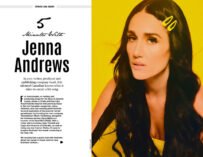
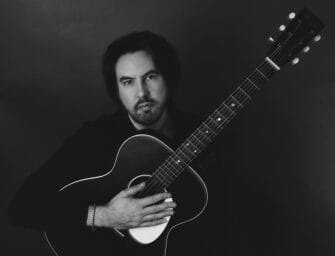
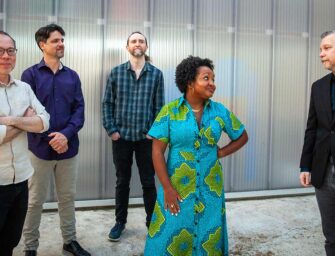
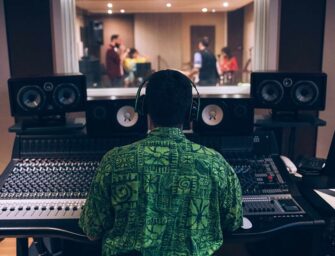

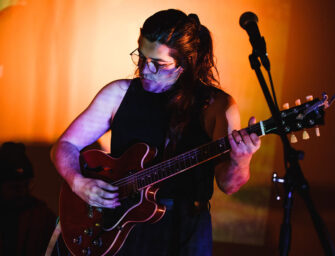





















Related Articles